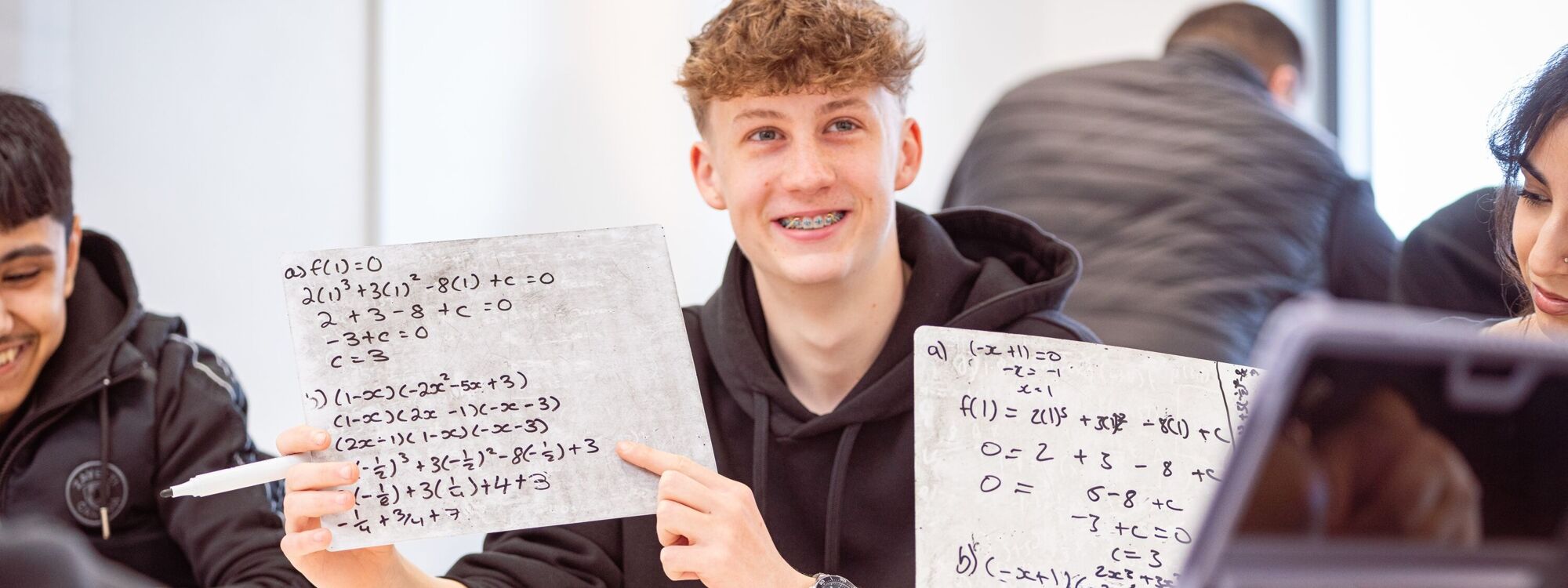- Home
- Courses
- Courses
- Mathematics
Mathematics explores areas of pure mathematics such as geometry, algebra and trigonometry. It also deepens your knowledge of statistics and probability, considering the application of these in real-life, including learning how to use and analyse a real-world large data set. Mechanics is a new topic to most students; this is the study of how things move and interact with each other.
Entry requirements
To study at RSFC, you must have achieved a minimum of five GCSEs or equivalent at grade 4 or above across four separate subjects, including GCSE Mathematics and/or English Language. In addition, a grade 6 or above is required in GCSE Mathematics.
Why study this course?
Employers in all sectors highly value a candidate who can offer mathematical ability. Research has shown those with a mathematics A level, on average, have higher salaries than those without! Mathematics shows logic, reasoning and a high level of numeracy, and serves to support many other courses. This offers the opportunity to continue improving your numerical skills and learn a great deal beyond your GCSE course.
What can you expect from A level Mathematics?
As well as building on topics you have studied at school, there are new branches of mathematics to explore, including calculus - differentiation and integration, exponentials and logarithms, and vectors. As well as these pure topics, the applied section, including statistics and mechanics, is new to most students; taught from real-life examples and interpreted back into the real world, it will enable you to develop your analytical and problem-solving skills.
KEY TOPICS - YEAR 1
Pure mathematics including
• Trigonometry
• Calculus
• Vectors
• Logarithms
Statistics including:
• Probability
• Numerical Measures
• The Binomial distribution
Mechanics including:
• Constant acceleration
• Forces
• Units and vectors
KEY TOPICS - Year 2
Pure mathematics including:
• Differential equations
• Sequences
• Numerical methods
• Further calculus
Statistics including:
• The normal distribution
• Correlation and regression
• Approximations and hypothesis testing
Mechanics including:
• Variable acceleration
• Moments
• Projectiles
What can I do with a qualification in Mathematics?
A level Mathematics supports almost all career pathways - from careers in medicine or engineering, to data analysis, economics, computer programming, sciences, and business to name but a few. It is highly regarded by employers and universities and is a sought after qualification.
How is this course assessed?
There are three examinations at the end of the second year of study. Two of these are on pure mathematics, worth 100 marks each. The third consists of two sections, one statistics and one mechanics; these are worth 50 marks each.
Who is this course for?
If you enjoy learning about mathematical concepts and new methods of problem-solving and have a strong mathematical ability, then A level Mathematics is for you. Mathematics is for anyone who is keen to keep up their strong numeracy and algebra skills and is a good combination with any other subjects.


